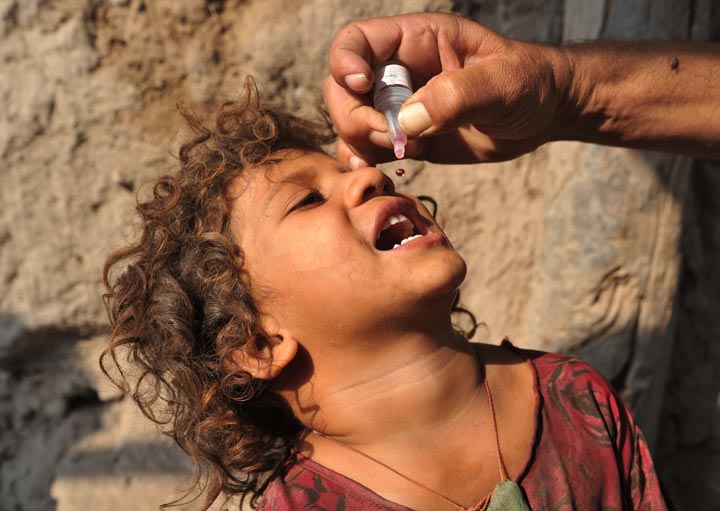The Canadian official who heads the WHO’s polio eradication effort says of the many challenges facing the quarter-century-old program, evidence of polio in Cameroon – which borders on the troubled Central African Republic – is currently one of the most concerning.

The polio eradication campaign has faced a number of significant setbacks in the past year or so, with outbreaks in the Horn of Africa – Somalia, Kenya and Ethiopia – as well as war-torn Syria.
But of the ongoing outbreaks, Dr. Bruce Aylward said the situation in Cameroon is the one which worries him the most at the moment, listing a number of reasons.
Analysis of polioviruses from Cameroon suggests they have been circulating unchecked and undetected for at least a couple of years. Several recent nationwide vaccination campaigns have not appeared to halt the spread. And viruses from Cameroon have spread to neighbouring Equatorial Guinea.
READ MORE: Polio-like illnesses a mystery in California
That highlights the risk of further spread to another neighbour, the Central African Republic, where ethic-inspired killing is raising the spectre of another Rwanda. This week the United Nations agreed to send a nearly 12,000-person-strong peacekeeping force to the country.
“You sure as hell don’t want (the Central African Republic) to get reinfected,” said Aylward, a native of Newfoundland who is the World Health Organization’s assistant director general for polio, emergencies and country collaboration.
Aylward was in Ottawa this week bringing Canadian officials up to speed on the shape of the ongoing eradication effort. A longtime donor to the effort, last year Canada pledged $250 million for the 2013-18 period. This week the federal government threw in an extra $3 million, to help with the effort to extinguish the outbreak in the Horn of Africa.
To date this year there have been 56 confirmed polio cases, three times as many as were seen last year at this time. Most of the cases – 43 – have occurred in Pakistan, one of three countries where polio remains endemic. (That means the country has never stopped transmission of the virus within its borders.)
The other two countries on the endemic list are Nigeria, which has only had one case so far this year, and Afghanistan, which has had four. For quite a while, most of the cases in Afghanistan have been caused by viruses that had come over the border from Pakistan.
READ MORE: Polio-like illnesses a rare ‘phenomenon’
“I would bet money that if Afghanistan did not share a border with Pakistan it would stop transmission this year, or be very, very close,” Aylward said.
Pakistan, though, remains a major problem for the eradication effort, a partnership of the WHO, UNICEF, Rotary International, the U.S. Centres for Disease Control and the Bill and Melinda Gates Foundation.
Repeated and sometimes fatal attacks on vaccination teams have plagued efforts to get vaccine to children. And vaccination efforts have been halted in Waziristan, a conservative tribal region in the west of the country, bordering on Afghanistan.
Aylward said there is intense transmission of polio in Waziristan, which poses “a huge risk for both national and international spread.”



Comments